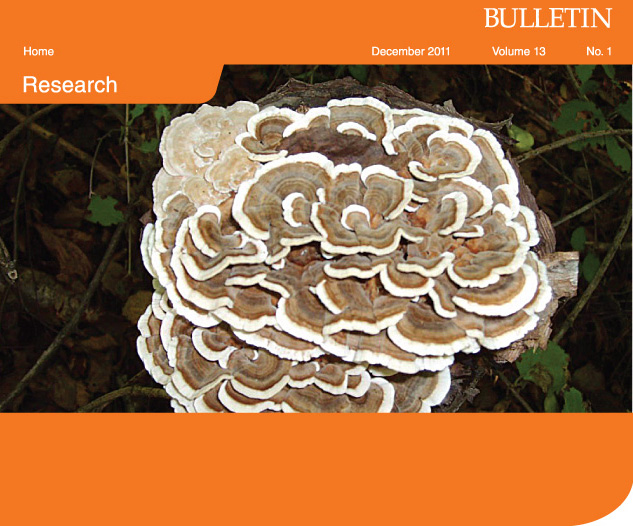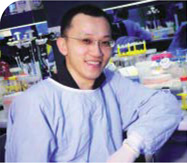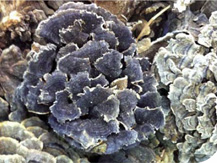
|
“Our big breakthrough was the discovery that PSP |
| Scientists at HKU and the Queensland University of Technology have made a major discovery that could lead to more effective treatment of prostate cancer, the second most frequently diagnosed cancer of men, with around 900,000 new cases worldwide a year. A compound prevalent in the Yunzhi, or Turkey Tail, mushroom, has been found to be 100 per cent effective in suppressing prostate tumour development in mice. The compound, polysaccharopeptide (PSP) targets prostate cancer stem cells and suppresses tumour formation. Dr Terence Lee Kin-wah from Faculty of Medicine has been working on the research trials in collaboration with Dr Patrick Ling, formerly of HKU and now at the Australian Prostate Cancer Research Centre-Queensland and Institute of Health and Biomedical Innovation (IHBI) at the Queensland University of Technology. During the research trial, transgenic mice that developed prostate tumours were fed PSP for 20 weeks. No tumours were found in any of the mice fed PSP, while mice not given the compound developed prostate tumours. Vital link Says Dr Lee, "It was Dr Ling who first made the link between Yunzhi – which has been used in China as an alternative medicine for years – and the suppression of growth of Cancer Stem Cells (CSCs). PSP decreases the population of the CSC markers including CD133 and CD44, which are the source of tumour development." "There had been many studies and experiments with Yunzhi before, but they concentrated on its efficacy in increasing immunity in the body – in other words, its therapeutic properties for enhancing the body's resistance. Our big breakthrough was the discovery that PSP actually suppresses the cancerous stem cells which initiate cancer and cause the disease to progress." He says that other inhibitors tested in research trials have proven 70 per cent effective, but in the tests on mice the mushroom compound was proving 100 per cent effective in preventing tumour development. Cancer initiation The findings are significant because recent evidence has suggested that prostate CSCs are responsible for cancer initiation as well as disease progression. Conventional therapies are only effective in targeting the more differentiated cancer cells and spare the CSCs. In Hong Kong, the incidence of prostate cancer has increased at the fastest rate among all cancers affecting men. The number of in-patient discharges and deaths due to prostate cancer, has continued to rise gradually in recent years. Reasons for the increase are put down to diet – particularly increased consumption of 'Western' foods such as red meat. In 2009, 4,500 in-patient discharges and deaths were related to prostate cancer, accounting for 3.2 per cent of hospitalization due to all types of cancers. Prostate cancer was the fifth leading cause of cancer death in males in 2009 with 306 people dying from the disease. Tumour relapse At the moment prostate cancer is treated by surgical removal of the tumour, then hormonal therapy which is very effective if the cancer is discovered early. However after two or three years, the tumour can stop responding to chemotherapy and the patient suffers tumour relapse, which is often fatal. Dr Ling's research is now moving in two main directions. He is conducting experiments to see if Yunzhi can inhibit CSCs in other types of cancer such as liver and breast. They are also examining combinations of Yunzhi and other chemicals for treatment of prostate cancer. "At the moment, the experiments are still on mice," says Dr Lee, "but if findings are good clinical trials on humans will follow in Australia." "CSCs are the source of tumour recurrence, and they are more resistant to chemotherapy. This is where we hope Yunzhi will be effective. If all goes well, we would expect to use Yunzhi alongside chemotherapy to treat prostate cancer." |
|
|
|
| Back | Next | |


